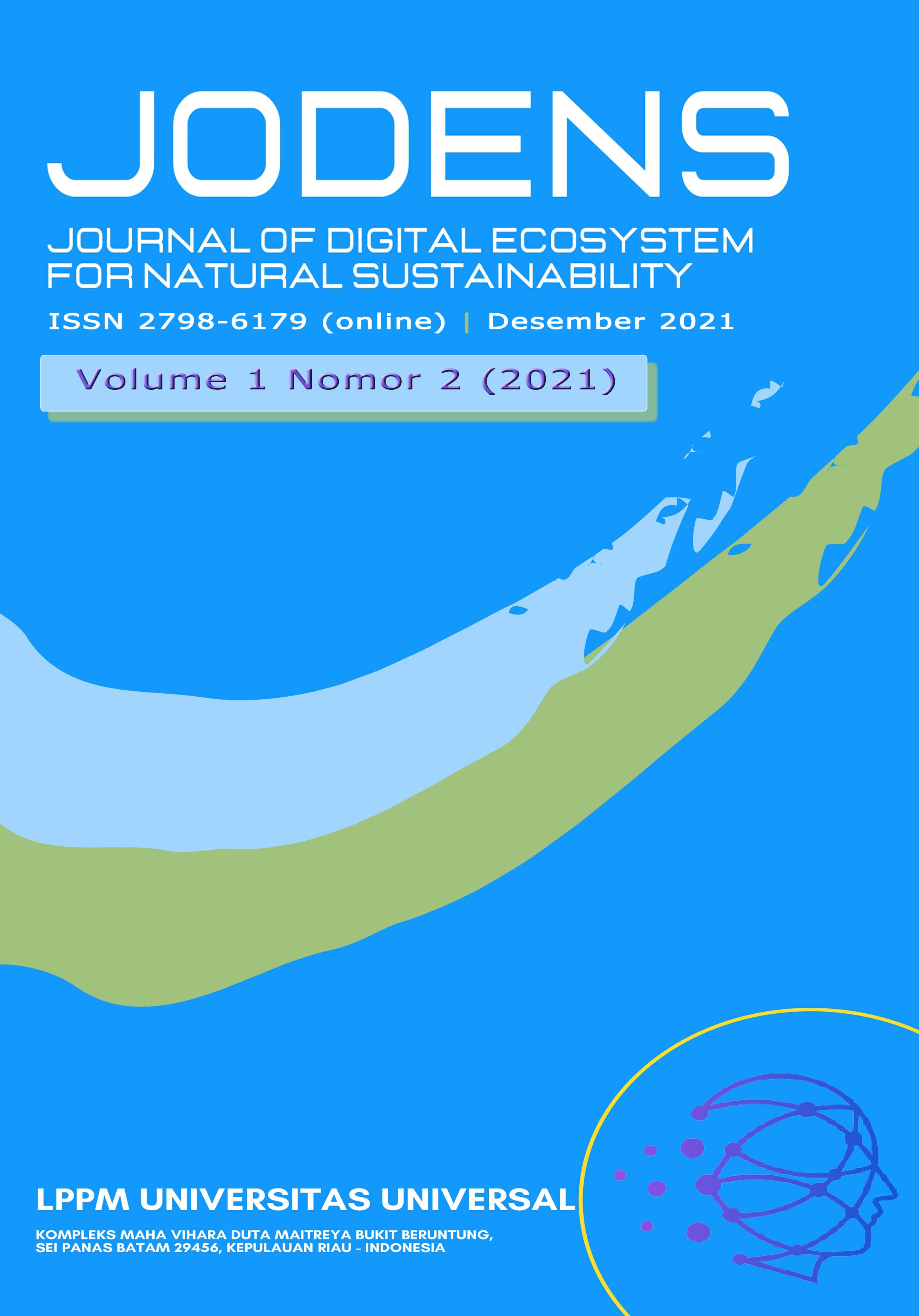Implementation of Text Mining to Know Abbreviation Words in Social Media Conversation
DOI:
https://doi.org/10.63643/jodens.v1i2.43Keywords:
Abreviation, Graph, Media Social, Preprocessing, Text MiningAbstract
Social media are technology that allow sharing or exchange of information, ideas, interests, etc., via virtual communities and networks. Social media is often use for chatting either private chat or commenting on posts, and most frequently used application in Indonesia such as Facebook, WhatsApp, Instagram, Twitter, and so on. So far, peoples are typing using abbreviations as habit instead using full word and thus cause misunderstanding for others. Descriptive qualitative method was used to collect data. Text mining is a data science technique which mine data in the form of text and look for words that can represent or analyze the content of the document, and by using network of terms that can build a graph for knowing interactions between words in document. In this study, with implementing data preprocessing in text mining process is expected to reduce word or text that are not necessary, which made analyze easier to find out abbreviations within captions or comments.
References
A. M. Kaplan and M. Haenlein, “Users of the world, unite! The challenges and opportunities of Social Media,” Business Horizons, vol. 53, no. 1, pp. 59–68, Jan. 2010, doi: 10.1016/j.bushor.2009.09.003.
R. C. Cenderamata, and A. N. Sofyan, “Abreviasi dalam Percakapan Sehari-hari di Media Sosial.”, Journal of Linguistics vol. 4 no. 1, Apr 2019.
R. Feldman and J. Sanger, “The text mining handbook: advanced approaches in analyzing unstructured data,” Cambridge University Press, 2007.
M. Nurjannah, Hamdani, I. F. Astuti, “PENERAPAN ALGORITMA TERM FREQUENCY-INVERSE DOCUMENT FREQUENCY (TF-IDF) UNTUK TEXT MINING”, Journal Informatika Mulawarman, vol. 8, no. 3, Sep 2013.
C. Williams, “Research Methods,” Journal of Business & Economic Research, vol 5, no. 3, Mar 2007.
J. Han, M. Kamber, and J. Pei, “Data Mining. Concepts and Techniques, 3rd Edition”, The Morgan Kaufmann Series in Data Management Systems, 2011.
F. S. Jumeilah, “Penerapan Support Vector Machine (SVM) untuk Pengkategorian Penelitian,” Jurnal RESTI, vol. 1, no. 1, 2017.
D. D. C. Nugraha, Z. Naimah, M. Fahmi, and N. Setiani "Klasterisasi Judul Buku dengan Menggunakan Metode K-Means", Seminar Nasional Aplikasi Teknologi Informasi, 2014.
E. Otte and R. Rousseau, “Social network analysis: a powerful strategy, also for the information sciences,” Journal of Information Science, vol. 28, no. 6, pp. 441–453, Dec. 2002, doi: 10.1177/016555150202800601.
M. A. Rofiqi, A. C. Fauzan, A. P. Agustin, and A. A. Saputra, “Implementasi Term-Frequency Inverse Document Frequency (TF-IDF) Untuk Mencari Relevansi Dokumen Berdasarkan Query,” ILKOMNIKA: Journal of Computer Science and Applied Informatics, vol. 1, no. 2, pp. 58–64, Dec. 2019, doi: 10.28926/ilkomnika.v1i2.18.
D. L. Hansen, B. Shneiderman, M. A. Smith, and I. Himelboim, “Installation, orientation, and layout,” Analyzing Social Media Networks with NodeXL, pp. 55–66, 2020, doi: 10.1016/B978-0-12-817756-3.00004-2.
Downloads
Published
How to Cite
Issue
Section
License
Copyright (c) 2021 Geovaldo Reggie Yunarfi, Ricky Simdy, Jackson

This work is licensed under a Creative Commons Attribution 4.0 International License.
















